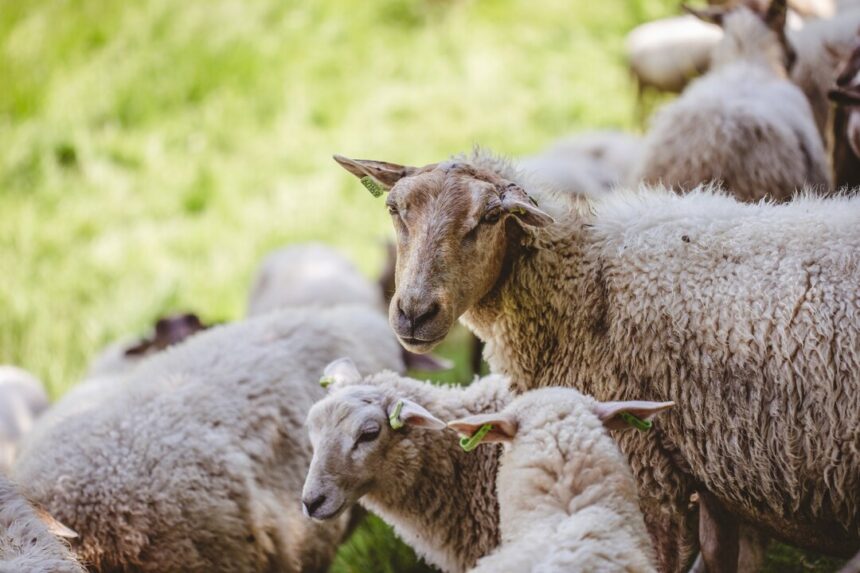Afrikaner sheep, known for their hardiness, adaptability, and excellent maternal instincts, have been an integral part of South Africa’s agricultural landscape for centuries. Originating from indigenous African sheep breeds, Afrikaner sheep are prized for their ability to thrive in harsh environmental conditions and low-input farming systems. In this article, we’ll explore ten essential things you should know about breeding and farming Afrikaner sheep in South Africa, covering key aspects such as breed characteristics, breeding strategies, and management practices.
- Origin and History:
Afrikaner sheep are indigenous to South Africa and have been bred by local farmers for centuries. The breed traces its origins to the Khoikhoi and San people, who developed sheep adapted to the arid and semi-arid regions of the country. Over time, selective breeding and natural selection have resulted in the development of the modern Afrikaner sheep breed.
- Breed Characteristics:
Afrikaner sheep are characterized by their medium-sized frame, white wool, and distinctive red or black head and legs. They have a strong constitution, withstanding heat, drought, and parasites better than many other sheep breeds. Afrikaner sheep are renowned for their excellent foraging ability and adaptability to extensive grazing systems.
- Adaptability and Resilience:
One of the key attributes of Afrikaner sheep is their adaptability and resilience to harsh environmental conditions. They thrive in arid and semi-arid regions with limited rainfall and sparse vegetation, making them well-suited to extensive farming systems.
- Reproductive Efficiency:
Afrikaner ewes are known for their high fertility rates and prolificacy, with many individuals giving birth to twins or even triplets. They have excellent maternal instincts and are capable of raising healthy lambs under challenging conditions.
- Wool Production:
While Afrikaner sheep are primarily raised for meat production, they also produce a medium-grade wool with good staple length and strength. The wool is often used for carpet manufacturing and other industrial applications.
- Breeding Strategies:
When breeding Afrikaner sheep, it’s essential to focus on selecting animals with desirable traits such as fertility, adaptability, and meat quality. Breeding programs often incorporate performance testing, genetic selection, and pedigree analysis to improve flock genetics and productivity.
- Commercial Potential:
Afrikaner sheep have significant commercial potential for meat production in South Africa. Their excellent meat quality, reproductive efficiency, and adaptability to extensive grazing systems make them valuable assets for commercial sheep farming operations.
- Nutrition and Feeding:
Providing adequate nutrition is essential for maximizing the growth and performance of Afrikaner sheep. A balanced diet rich in protein, energy, vitamins, and minerals is necessary to support optimal growth rates and reproductive performance.
- Health Management:
Effective health management practices are crucial for preventing disease outbreaks and ensuring the welfare of Afrikaner sheep. This includes routine vaccination, parasite control, biosecurity measures, and regular health monitoring by a qualified veterinarian.
- Market Opportunities:
The growing demand for high-quality lamb meat presents lucrative market opportunities for Afrikaner sheep farmers in South Africa. With their superior meat quality, reproductive efficiency, and adaptability, Afrikaner sheep are well-positioned to meet the needs of consumers and capitalize on the expanding sheep meat market.
Breeding and farming Afrikaner sheep offer numerous benefits for sheep producers seeking hardy, adaptable, and productive sheep breeds. With their unique characteristics, including adaptability, resilience, and reproductive efficiency, Afrikaner sheep play a vital role in South Africa’s sheep farming sector. By leveraging the distinct attributes of Afrikaner sheep and implementing sound breeding and management practices, farmers can enhance productivity, profitability, and sustainability in their sheep farming enterprises, contributing to the growth and development of the sheep industry in South Africa.
Join 'Farmers Mag' WhatsApp Channel
Get the latest Farming news and tips delivered straight to your WhatsApp
CLICK HERE TO JOIN






